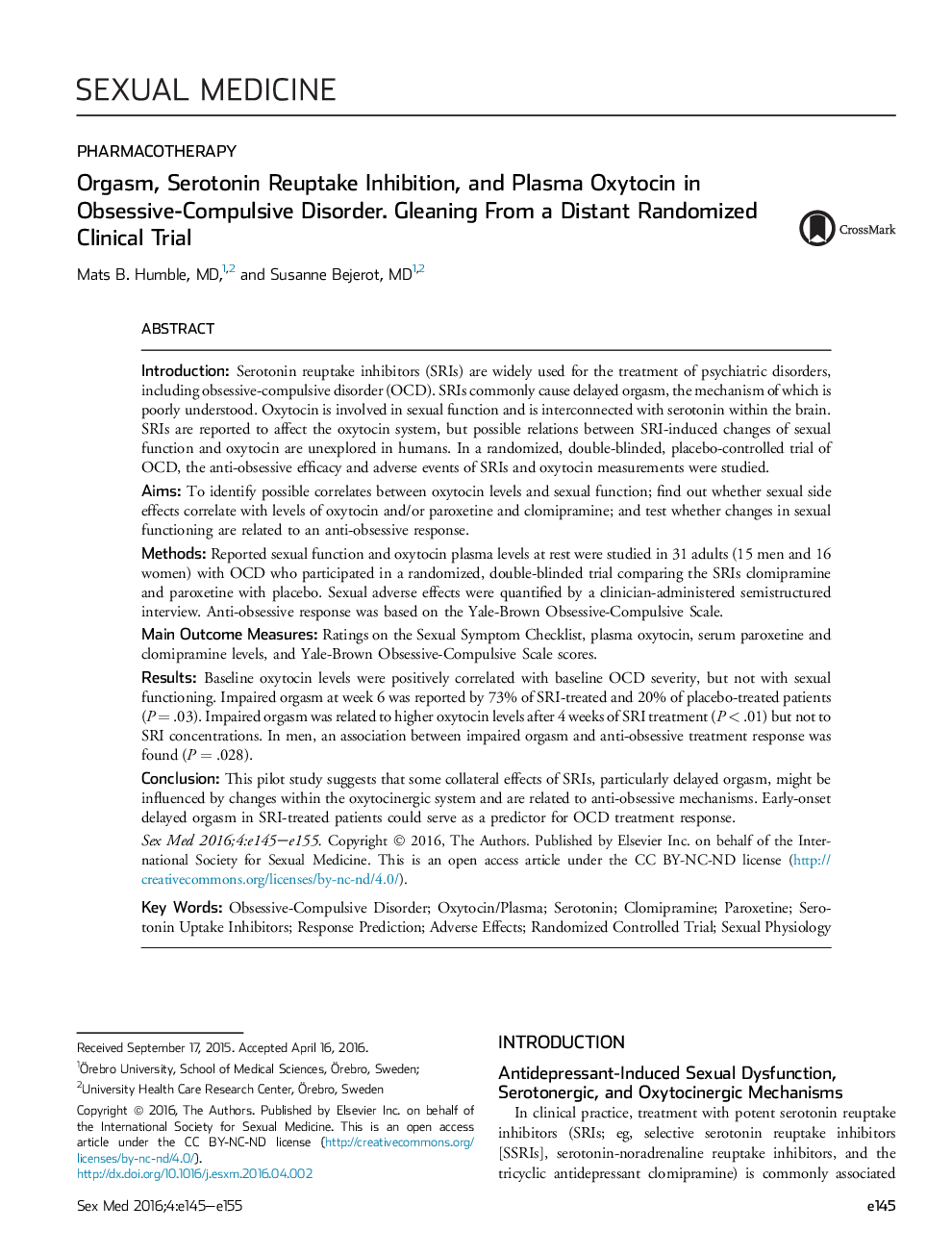| Article ID | Journal | Published Year | Pages | File Type |
|---|---|---|---|---|
| 4274480 | Sexual Medicine | 2016 | 11 Pages |
IntroductionSerotonin reuptake inhibitors (SRIs) are widely used for the treatment of psychiatric disorders, including obsessive-compulsive disorder (OCD). SRIs commonly cause delayed orgasm, the mechanism of which is poorly understood. Oxytocin is involved in sexual function and is interconnected with serotonin within the brain. SRIs are reported to affect the oxytocin system, but possible relations between SRI-induced changes of sexual function and oxytocin are unexplored in humans. In a randomized, double-blinded, placebo-controlled trial of OCD, the anti-obsessive efficacy and adverse events of SRIs and oxytocin measurements were studied.AimsTo identify possible correlates between oxytocin levels and sexual function; find out whether sexual side effects correlate with levels of oxytocin and/or paroxetine and clomipramine; and test whether changes in sexual functioning are related to an anti-obsessive response.MethodsReported sexual function and oxytocin plasma levels at rest were studied in 31 adults (15 men and 16 women) with OCD who participated in a randomized, double-blinded trial comparing the SRIs clomipramine and paroxetine with placebo. Sexual adverse effects were quantified by a clinician-administered semistructured interview. Anti-obsessive response was based on the Yale-Brown Obsessive-Compulsive Scale.Main Outcome MeasuresRatings on the Sexual Symptom Checklist, plasma oxytocin, serum paroxetine and clomipramine levels, and Yale-Brown Obsessive-Compulsive Scale scores.ResultsBaseline oxytocin levels were positively correlated with baseline OCD severity, but not with sexual functioning. Impaired orgasm at week 6 was reported by 73% of SRI-treated and 20% of placebo-treated patients (P = .03). Impaired orgasm was related to higher oxytocin levels after 4 weeks of SRI treatment (P < .01) but not to SRI concentrations. In men, an association between impaired orgasm and anti-obsessive treatment response was found (P = .028).ConclusionThis pilot study suggests that some collateral effects of SRIs, particularly delayed orgasm, might be influenced by changes within the oxytocinergic system and are related to anti-obsessive mechanisms. Early-onset delayed orgasm in SRI-treated patients could serve as a predictor for OCD treatment response.
